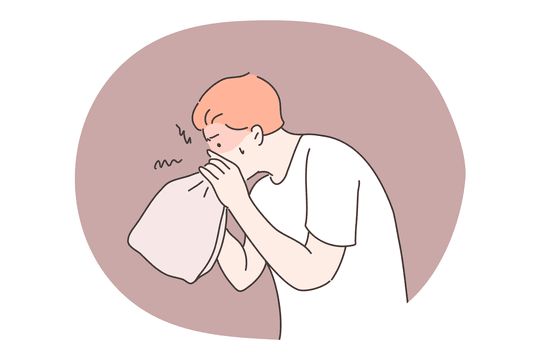
Panic disorder is a debilitating mental health condition characterized by sudden and recurrent episodes of intense fear or discomfort, often accompanied by physical symptoms such as heart palpitations, chest pain, and shortness of breath. These panic attacks can occur unexpectedly and without any apparent trigger, leading to significant distress and disruption in daily life. we will look into the intricacies of panic disorder, exploring its symptoms, potential causes, and available treatment options.
Recognizing the Symptoms
Panic attacks associated with panic disorder are typically brief, reaching peak intensity within minutes and lasting for about 10 to 25 minutes on average. Common symptoms of a panic attack include:
- Rapid heartbeat or palpitations
- Sweating
- Trembling or shaking
- Shortness of breath or feeling of choking
- Chest pain or discomfort
- Nausea or abdominal distress
- Dizziness or lightheadedness
- Feelings of derealization or depersonalization (a sense of unreality or detachment from oneself)
- Fear of losing control or going crazy
- Fear of dying
These symptoms can be overwhelming and may lead individuals to believe they are experiencing a life-threatening medical emergency, further exacerbating their anxiety and distress.
Understanding the Causes
The exact cause of panic disorder is not fully understood, but a combination of genetic, biological, and environmental factors is believed to contribute to its development. Some potential factors associated with panic disorder include:
- Genetics: Individuals with a family history of panic disorder or other anxiety disorders may be at a higher risk of developing the condition themselves.
- Brain Chemistry: Imbalances in neurotransmitters such as serotonin and norepinephrine, which regulate mood and stress responses, may play a role in the onset of panic disorder.
- Stressful Life Events: Traumatic experiences or major life transitions, such as the loss of a loved one or significant changes in work or relationships, can trigger the onset of panic attacks in susceptible individuals.
- Biological Vulnerability: Sensitivity to physical sensations or a heightened physiological response to stress may predispose individuals to panic disorder.
Seeking Treatment
Fortunately, panic disorder is a treatable condition, and various therapeutic approaches are available to help individuals manage their symptoms and regain control of their lives. Treatment options for panic disorder may include:
- Cognitive-Behavioral Therapy (CBT): CBT is considered the gold standard in treating panic disorder. This therapy helps individuals identify and challenge negative thought patterns and beliefs that contribute to panic attacks. It also teaches practical skills for managing anxiety, such as relaxation techniques and exposure therapy.
- Medication: Antidepressant medications, particularly selective serotonin reuptake inhibitors (SSRIs) and serotonin-norepinephrine reuptake inhibitors (SNRIs), are often prescribed to reduce the frequency and severity of panic attacks. Benzodiazepines may be used on a short-term basis for acute symptom relief but are generally not recommended for long-term use due to the risk of dependence and withdrawal.
- Lifestyle Modifications: Engaging in regular exercise, practicing stress-reduction techniques such as mindfulness meditation or yoga, maintaining a healthy diet, and avoiding alcohol and stimulants can all contribute to symptom management and overall well-being.
- Support Groups: Connecting with others who have experienced similar challenges can provide valuable support and encouragement. Support groups or peer-led initiatives can offer a sense of community and understanding that is often beneficial in coping with panic disorder.
Panic disorder can have a profound impact on individuals’ lives, causing significant distress and impairment in daily functioning. However, with proper treatment and support, it is possible to effectively manage symptoms and lead a fulfilling life. If you or someone you know is struggling with panic attacks or symptoms of panic disorder, it is essential to seek help from a qualified mental health professional. By taking proactive steps to address the condition, individuals can reclaim control over their mental health and well-being, paving the way for a brighter and more resilient future.